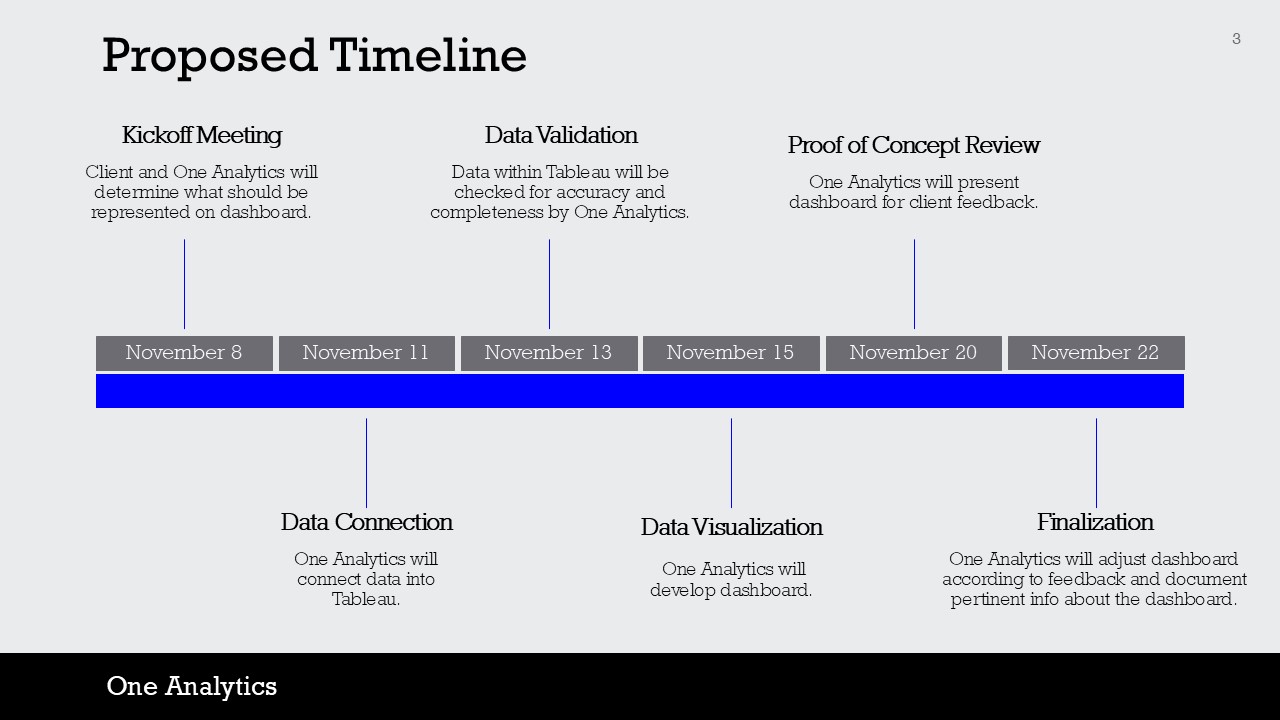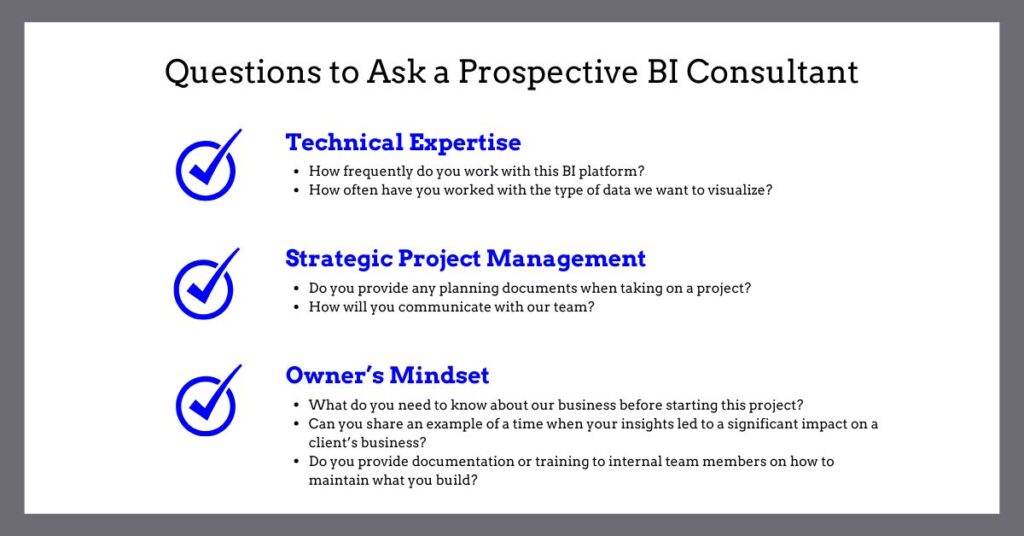Implementing a business intelligence (BI) platform can be transformative for organizations, giving stakeholders the ability to efficiently access and analyze the data they need to make smarter, data-driven decisions. However, not every organization has the internal expertise or sufficient staff resources to set up and maintain a BI platform effectively. That’s where a business intelligence consultant comes in.
Business intelligence consultants help organizations implement and manage their BI platforms, enabling them to leverage their data more quickly while ensuring confidence in its accuracy. Even if you know you want to partner with a consultant, how do you decide which one to select? In this blog post, we walk through three things you should look for when selecting a business intelligence consultant.
1. Technical Expertise
When selecting a BI consultant, it is important to assess how their technical expertise aligns with your specific needs. We recommend looking for expertise in two areas: the BI platform you plan to use and the type of data you are trying to visualize.
For example, if you have selected Domo as your BI platform and plan to visualize your marketing data first, you should evaluate both the consultant’s experience with Domo and how frequently they’ve worked with marketing data. A consultant with extensive experience using Domo to handle marketing data is more likely to complete your project efficiently and effectively, saving you time and money while ensuring you get the insights you need.
Consider asking questions such as:
- How frequently do you work with this BI platform?
- How often have you worked with the type of data we want to visualize (e.g. Google Analytics data, Facebook Ads data, etc.)?
2. Strategic Project Management
BI projects require thoughtful planning and execution. They necessitate collaboration across teams and ongoing communication as expectations and requirements evolve.
The right business intelligence consultant will plan and execute with care. At the start of the project, they’ll identify all the steps needed to ensure successful completion, as well as the stakeholders who rely on its outcome. They’ll create planning documents, such as a detailed timeline, to establish clear expectations from the outset. For example, you can see a proposed timeline that we recently provided to a prospective client below.

During the project, they’ll actively communicate status updates in the manner preferred by you. For example, if you want all updates logged in a task management tool like Asana, the consultant will provide updates there. If you want all updates conveyed in a Monday morning standup, the consultant will join that recurring meeting. Effective planning and communication ensures that the project stays on track, reduces the risk of miscommunication, and helps prevent costly delays.
Consider asking questions such as:
- Do you provide any planning documents when taking on a project? (e.g. Do you create a timeline?)
- How will you communicate with our team? (e.g. Do you establish recurring meetings? Will you join our Slack channel?)
3. Owner’s Mindset
It is crucial to find a consultant who understands your business and approaches it with care and attention. We call this the “Owner’s Mindset”—the idea that business intelligence consultants should treat the businesses they work with as if they were their own.
The right BI consultant will take the time to dive deep into the details of your business, asking insightful questions about your goals and strategic priorities. They’ll align the BI strategy with your broader business objectives, helping you make decisions as though they were a key stakeholder.
Look for someone who proactively identifies issues and suggests improvements that will benefit your business over the long run. For example, a consultant might recognize that the work they’re doing to pull in your marketing data could also streamline your finance team’s reporting of marketing spend. Consultants with an owner’s mindset think holistically about your business and how their solutions can add value across multiple areas.
A BI consultant with an owner’s mindset is also willing to make themselves non-essential after completing the project. This means providing thorough documentation, training, and materials to ensure that your team can maintain and extend what has been built, even if you decide not to continue working with the consultant. By leaving everything behind in a structured and organized manner, they show their commitment to the long term-success of your business even after the project is completed.
Consider asking questions such as:
- What do you need to know about our business before starting this project?
- Can you share an example of a time when your insights led to a significant impact on a client’s business?
- Do you provide documentation or training to internal team members on how to maintain what you build?
Conclusion
A business intelligence consultant who brings technical expertise, strategic project management, and an owner’s mindset to your projects can be a tremendous asset to your business. As you search for a consultant, you can use the questions outlined in this blog post to assess various consultant’s strengths in these areas. We’ve compiled the questions below.

At One Analytics, we meet these criteria and are ready to help you succeed. Have a project in mind? Check out our Domo, Tableau, and Looker Studio consulting services.


